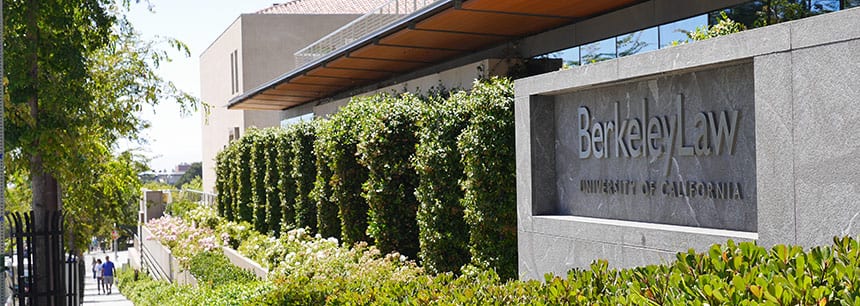The Berkeley Judicial Institute (BJI) will fill a long-standing need to establish an effective bridge between the legal academy and the judiciary for the primary purpose of promoting judicial integrity and judicial independence. Judicial integrity encompasses professional competence, high ethical standards, objectivity, impartiality, respect for due process, and judicial wellness. Judicial independence includes avoidance of political influence, understanding of and respect for the separation of powers, and support for judges facing retribution for their decisions. BJI will also focus on supporting and expanding innovation in education for and about the judiciary and developing best practices for efficient case management and judicial administration.
The United States long has relied on independent judges to apply the nation’s laws and resolve disputes fairly and efficiently. As legislatures have expanded those laws and advancing technology and social change have affected the legal landscape, judges and the professionals with whom they work in the courts have faced a growing array of challenges. At the same time, the increasingly polarized political environment of recent years has threatened judicial integrity and independence, essential pillars of a just society based upon the rule of law.
The legal academy focuses on the training of new attorneys and the study of law, law reform, and the administration of justice. Legal scholars increasingly draw upon empirical and theoretical insights from other disciplines, such as social science and philosophy. These approaches have the potential to be of great value to the judiciary, but judges and practitioners frequently have lamented that legal scholarship has become less relevant to the actual work that they do.
BJI will seek to address these concerns through a direct, pragmatically focused partnership between the judiciary and the legal academy. Judge Jeremy Fogel, a distinguished state and federal jurist, and the Director of the Federal Judicial Center (FJC) since 2011, will serve as BJI’s founding Executive Director. During his tenure at the FJC, Judge Fogel has implemented important innovations in both the pedagogy and the content of judicial branch education. His wealth of experience in the nonprofit sector, as a state and federal judge, and as FJC Director ideally suit him to lead this initiative. His presence will enable BJI to continue and build upon Berkeley Law’s longtime collaboration with the FJC and to establish new collaborations with the National Center for State Courts and other judicial organizations. And BJI’s status as a non-governmental entity with deep roots in the judiciary will enable it to speak openly and knowledgeably about matters affecting judicial integrity and independence.
Judge Fogel’s completion of his seven-year term as FJC director in 2018 presents an opportunity to combine the resources of a leading law school with Judge Fogel’s expertise and experience to establish this innovative academic/judicial partnership. Over the past two decades, Berkeley Law faculty have been at the forefront of judicial education efforts. Dean Erwin Chemerinsky has been a regular lecturer on constitutional law developments at FJC programs for many years. Professor Peter Menell has organized more than sixty intellectual property seminars for judges, including an annual four-day program at Berkeley Law. Professor Menell’s Patent Case Management Judicial Guide, now in its third edition, draws upon the experience of leading practitioners and jurists to apply sound case management practices to patent litigation, one of the most challenging litigation specialties. The Berkeley Center for Law & Technology, under the leadership of Executive Director Jim Dempsey, currently is working with the FJC to develop a new series of technology webinars for federal judges. Dean Chemerinsky, Professor Menell, and Executive Director Dempsey all have worked closely with the FJC and with Judge Fogel.
Berkeley Law scholars across a wide range of legal fields and disciplines will pursue research projects in support of BJI’s mission. Berkeley Law’s faculty includes a broad range of leading traditional legal scholars as well as interdisciplinary scholars from both its core law faculty and its Jurisprudence and Social Policy Program. By providing faculty with regular opportunities to work closely with judges and practitioners, BJI will respond directly to the concern that the legal academy is losing touch with the practical realities of the profession.
